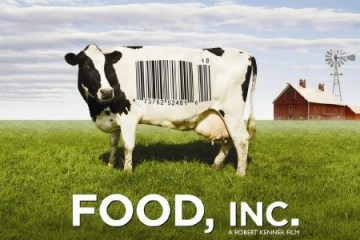“A man with a conviction is a hard man to change. Tell him you disagree and he turns away. Show him facts or figures and he questions your sources. Appeal to logic and he fails to see your point.” Leon Festinger
I’ve had many great opportunities in the past few years to speak with farmers and ranchers across the country, encouraging them to share their agriculture story and become involved in conversations about food production with their friends and neighbors. One recurring question I receive revolves around negativity in response to farming methods.

The quote above gives a brief insight to the frustrations we deal with when trying to engage consumers in food dialogues. Some folks are simply convicted in their stances, often based upon their first impressions. Farmers, ranchers, and those involved in food conversations from the agriculture point of view face an ever-growing, up-hill battle of preconceived notions. We’ve fallen behind the 8-ball in terms of getting information out to the public. Groups opposed to the idea of progression and technology in food production have painted a negative image of crop and livestock production and they’re riling up new followers with emotional exciting stories of corruption in the food industries.
For the most part, the agriculture community has a whole has done a lot of talking, but many of us have refrained from taking action on opportunities to engage with those groups opposed to our farming methods. When members of the agriculture community do attempt to speak up with our experience, we’re sometimes shot down without being given even the first consideration for honest perspective. So what do we do about this dilemma?
Keep the cooler head and stick to your experience. Industry buzz words, phrases, and key facts are handy, but nothing beats an honest and candid perspective. Transparency is a buzzword from consumers and they might just be shocked at what we’re sharing if they take the time to search and listen.
However, in some cases, though it’s not the norm, we’re being tuned out. The vocal minority wants nothing more to be heard and complain, all while drawing attention to themselves. For encounters with those folks, it may be best to let the actions of those on a soap box speak for themselves.
This reminds me of a post written a few years ago where I discussed the importance of being a PROactive communicator, instead of a REactive one in response to some of these more hot-button issues. Here’s a brief run down of those tips:
- Stick to your own experience – This will keep you from getting backed into a corner and you’ll have perspective and knowledge to back up your claims. If you don’t know an answer to a question, it’s okay to say, “I don’t know, but I will find someone who does,” then be sure to follow-up and learn together.
- Build content and materials before you need them – Remember how you usually have a plan (or should have) in case severe weather strikes? Use this concept and gather material to reference during future conversations around farming topics. I have found starting a bank of photos, videos, and references that explain what actually occurs during food production, makes hot-topic conversations go smoother. If you’re a blogger, write about these topics to make your materials even easier to reference.
- Respond to controversial topics – You don’t have to be an expert, but I’m willing to bet you have an opinion and possibly experience on many situations. When you get a question, write your thoughts and opinions, do a little background research, and share that information. Someone, some where will appreciate your effort and perspective.
- Be candid – Nothing is more refreshing than a genuinely honest, candid perspective in lamented conversations. Not every task goes smoothly on the farm and we probably have suggestions on how to improve certain tasks. Share those unique experiences.
- Listen – This one wasn’t on the previous list and should probably make it to the top of this list. Like I have said before, we have to ears and one mouth, use that ability and listen before forming your response. Listening allows us to better understand what is really being asked in the conversations. Unfortunately, we also have 10 fingers and the internet has given some people the ability to respond quicker than their filter can process that response.
Don’t let the actions of a few prevent you from joining the conversations. We’re all in this together whether we like it or not. Sure we have our differences, and no one method fits all situations, but I think a little consideration for others can go a long way for everyone involved.
